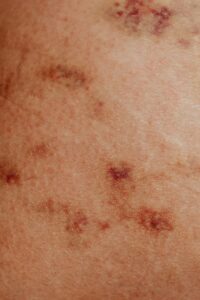 pics by pixals
pics by pixals
The Ultimate Guide to Eczema Cream: How to Find Relief, Soften Skin, and Feel Confident Again
Introduction to Eczema
Do you feel like you’ve tried every cream on the shelf, but your eczema just won’t quit? Maybe your skin is dry, red, or unbearably itchy—especially when you’re trying to focus or sleep. Eczema is a chronic skin condition that affects millions, and while there’s no cure, the right cream can make a world of difference.
Let’s dive into everything you need to know about eczema creams, from types and ingredients to tips on finding the one that truly works for you.
Why Eczema Creams Matter
When you’re living with eczema, creams are essential. They do more than just moisturize—good creams help repair the skin barrier, reduce inflammation, and calm that frustrating itch. Without them, eczema symptoms can worsen, leading to cracked, irritated skin that’s prone to infection. Finding the right cream isn’t just about comfort; it’s about protecting and healing your skin every day.
Types of Eczema Creams
The world of eczema creams can seem like a maze. Here’s a breakdown to help you find what might work best:
- Moisturizing Creams: Look for creams that deeply hydrate and restore your skin barrier with ingredients like ceramides and hyaluronic acid.
- Prescription Corticosteroids: For serious flare-ups, these creams are effective at reducing inflammation. Always follow your dermatologist’s directions here.
- Non-Steroidal Prescription Creams: Medications like calcineurin inhibitors can help manage eczema without the risks of long-term steroid use.
- Anti-itch OTC Creams: Soothing ingredients like colloidal oatmeal or pramoxine can help relieve itchiness.
- Natural and Alternative Creams: If you prefer a gentler touch, creams with aloe vera or chamomile can be an option, but consult your doctor if your eczema is severe.
Key Ingredients to Look For (and Avoid)
Choosing an eczema cream is all about knowing what’s inside the bottle. Here are some essential ingredients to look for—and avoid:
- Good Ingredients: Ceramides, colloidal oatmeal, shea butter, fatty acids, glycerin
- Ingredients to Avoid: Fragrances, alcohols, and parabens—these can trigger more irritation.
Choosing the Right Eczema Cream for You
Not all eczema is the same, so the cream that works wonders for one person might not do much for you. Here’s what to consider:
- Severity of Symptoms: Mild eczema? Go with OTC moisturizers. For more severe cases, consider asking your doctor about prescription options.
- Skin Sensitivity: If your skin reacts easily, opt for hypoallergenic, fragrance-free formulas.
- Age and Skin Type: Children’s eczema creams are often gentler, so choose age-appropriate formulas.
Check out our complete guide to managing eczema for more insights.
How to Apply Eczema Cream Properly
Timing and technique matter when applying eczema cream. Follow these steps to maximize relief:
- Apply right after a bath or shower when your skin is damp.
- Use a pea-sized amount for smaller areas, and don’t forget to spread it evenly.
- Follow up with a thick moisturizer if needed to lock in the cream’s benefits.
- Repeat twice daily—or as directed for the best results.
Busting Common Eczema Cream Myths
Let’s clear up a few misunderstandings about eczema creams:
- “Stronger creams are always better.” Not necessarily. Prescription creams can help with severe cases, but they’re not meant for long-term use.
- “Steroids are bad for you.” When used correctly, corticosteroids are safe for managing flare-ups and can be a powerful part of your toolkit.
Potential Side Effects and Safety Tips
Most creams come with some side effects. Here’s what to keep in mind:
- Corticosteroids: Watch for thinning skin with long-term use. Only use as directed.
- Topical Alternatives: Keep an eye on redness or tingling and let your doctor know if it doesn’t subside.
- Always test a small amount on your inner wrist before applying widely if you’re trying a new product.
Real Stories, Real Results
Many people have found relief with the right eczema cream. Sarah, a mom of three, finally managed her eczema after switching to a cream with ceramides and colloidal oatmeal. Her advice? “Stick to a routine and avoid harsh products.” Small changes can lead to big improvements over time.
FAQs
Q: What’s the best eczema cream? A: It depends on your skin type and needs, but moisturizers with ceramides and colloidal oatmeal are great starters.
Q: Can I use steroid cream every day? A: Steroid creams are safe when used as directed but are usually for short-term use.
Q: Are natural eczema creams effective? A: Some people find relief with ingredients like aloe vera, but they work best for mild symptoms.
Q: How do I know if a cream is working? A: Look for signs like less itching, reduced redness, and fewer flare-ups over time.
Conclusion
Eczema creams can make a difference when they’re chosen and used wisely. The journey to finding the right one might take time, but relief is possible. So, grab a cream that suits your skin, follow a regular routine, and don’t be afraid to try different options until you find the one that keeps your skin calm, hydrated, and happy.


Leave a Reply